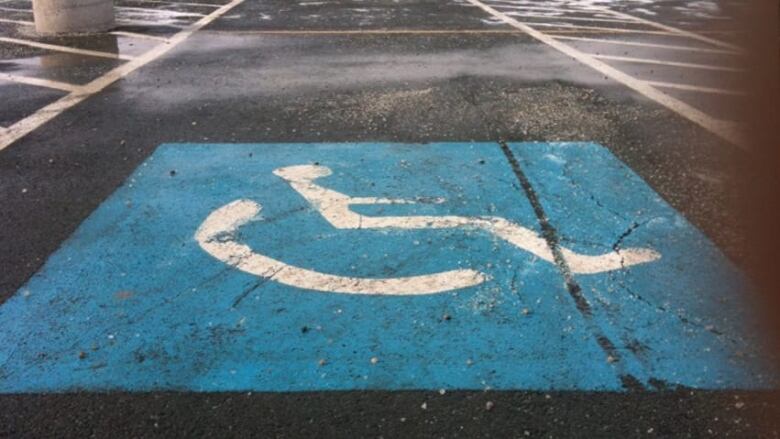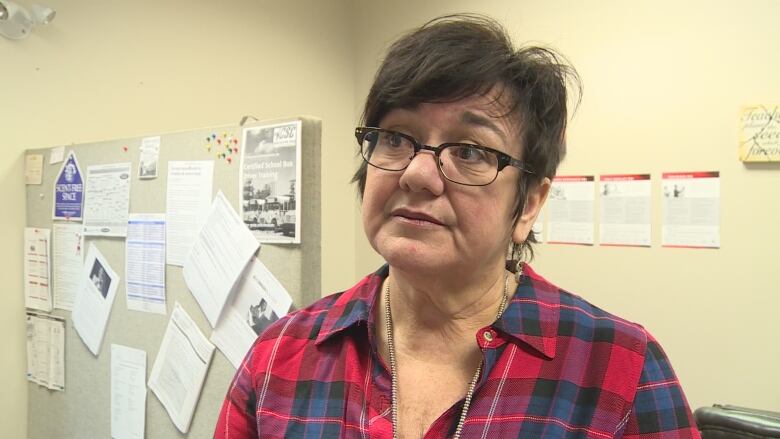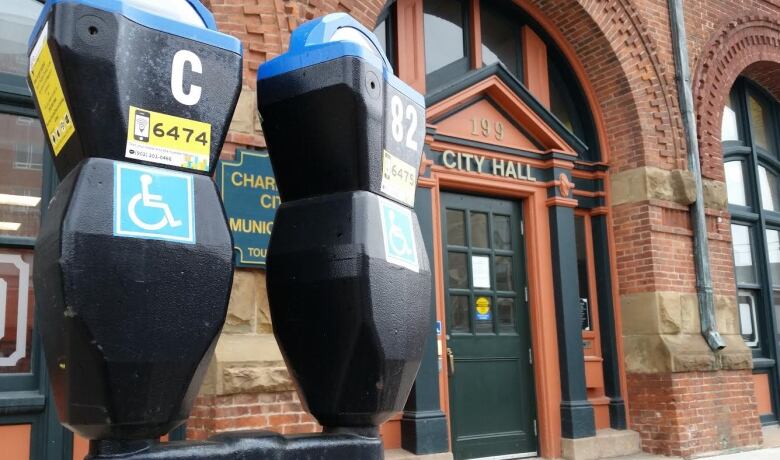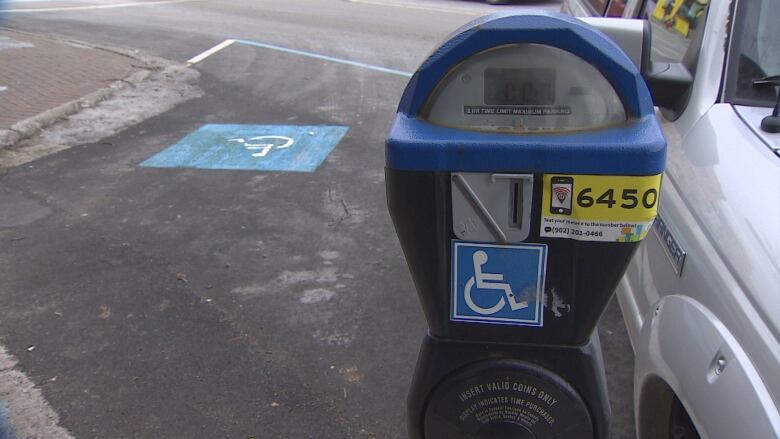Concerns raised about enforcing fines for parking spots for people with disabilities
RCMP support anything that makes enforcement easier

The PEI Council of People with Disabilities and the official provincial opposition are raising concerns about the enforcement of fines for parking in public spots meant for people with disabilities or mobility issues.
The legislation, known as Hannah's Bill, was passed in December, doubling fines for illegally parking in designated spots from $100 to $200. The bill also changed outdated language in the Highway Traffic Act.
City police hand out fines in Charlottetown and Summerside. Elsewhere RCMP enforce the legislation under the Highway Traffic Act. However it's more cumbersome because RCMP have to give a ticket in person. City police officers can just leave a ticket on the windshield.
Laws only as good as enforcement
The executive director for the PEI Council of People with Disabilities, Marcia Carroll, said laws are only as good as the enforcement. She said people were excited when the fines went up.
"We hear every day from people about the abuse of the use of the blue spots so people are now starting to question whether or not the raising of the fines is a deterrent, and it is a deterrent if it's policed properly,it's not a deterrent if it isn't," said Carroll.
Caroll said the challenge is jurisdictional. "If you're in a municipality that has ticket agents or ticket officers then they're pretty good in the urban centres to do the policing, but out where there's no bylaw officers, that becomes an issue."
We hear every day from people about the abuse of the use of the blue spots.- Marcia Carroll, PEI Council of People with Disabilities
The council suggests a cost-sharing program between municipal police and RCMP so there could be shared funds for enforcement across the Island. It also said the money from the fines could go to the council to hire someone, such as a former RCMP officer, to enforce the law across the Island.
Responsibility to address gap
Steven Myers, PC MLA for Georgetown - St. Peters, said outside of Summerside and Charlottetown there isn't much enforcement of the legislation.

Myers said since all 27 MLAs supported the bill there's a responsibility to address the gap in the legislation. He suggested allowing RCMP to leave tickets on vehicles or having an Islande-wide bylaw enforcement officer. He said there needs to be real enforcement so people who need the spaces can use them.
"While they may not be in a place like Montague every single day they could get through enough times that the message would be coming through loud and clear that it's not OK to park in these spots and if you do there's going to be a fine," said Myers.
RCMP said anything that could be done to increase enforcement or make it easier in this area would be a positive thing and less time-consuming.
RCMPsupportmaking enforcement easier
"It would certainly be easier for officers to enforce the laws and to give out a ticket for this type of parking offence if the legislation would allow service of the ticket be completed by leaving the ticket under the windshield of the vehicle or with the vehicle rather than have to try to identify locate the actual driver of the vehicle," said Staff Sgt. Kevin Baillie with P.E.I. RCMP.

Kensington doesn't have a bylaw covering disabled parking violations. Georgetown, Montague, and Souris have parking bylaws, but do not have municipal police forces according to research from the Legislative Assembly.
The Department of Transportation said there are no immediate plans to revisit Hannah's Bill or to change the way in which parking offence tickets can be issued under the Highway Traffic Act. The department has not had any complaints about the current way in which tickets can be issued or enforced.
The Department of Transportation does point out that an RCMP officer can run the plates of a vehicle parked illegally and give the owner of the vehicle a ticket in person as well if the driver isn't around, although it admits that is not as convenient.
Province has no immediate plans to change
The Department of Transportation would have to consult with the Department of Justice to see if enforcement under the Highway Traffic Act could change, said senior communications officer Ron Ryder for the Department of Transportation, Infrastructure and Energy.
Carroll reiterates using a blue spot is not a privilege, it's because the person has a significant physical challenge. About 6,500 Islanders have accessible parking permits according to the The PEI Council of People with Disabilities.
"It's very disparaging actually because people tell us every day that they struggle with trying to get parking spots," said Carroll.

She said she's heard stories of when people confront people who are using the spots who aren't supposed to they are met with rude behaviour saying they will only be a minute or that the person doesn't look disabled or appear to need the blue spot.
The council and RCMP both said education is more likely to deter someone from parking illegallyversus a fine because they know the impact of their choice.
- MORE P.E.I. NEWS |P.E.I. outlaw gang legislation may not hold up, says criminologist
- MORE P.E.I. NEWS |How high? Summerside debates new building sizes












_(720p).jpg)


 OFFICIAL HD MUSIC VIDEO.jpg)
.jpg)



























































































